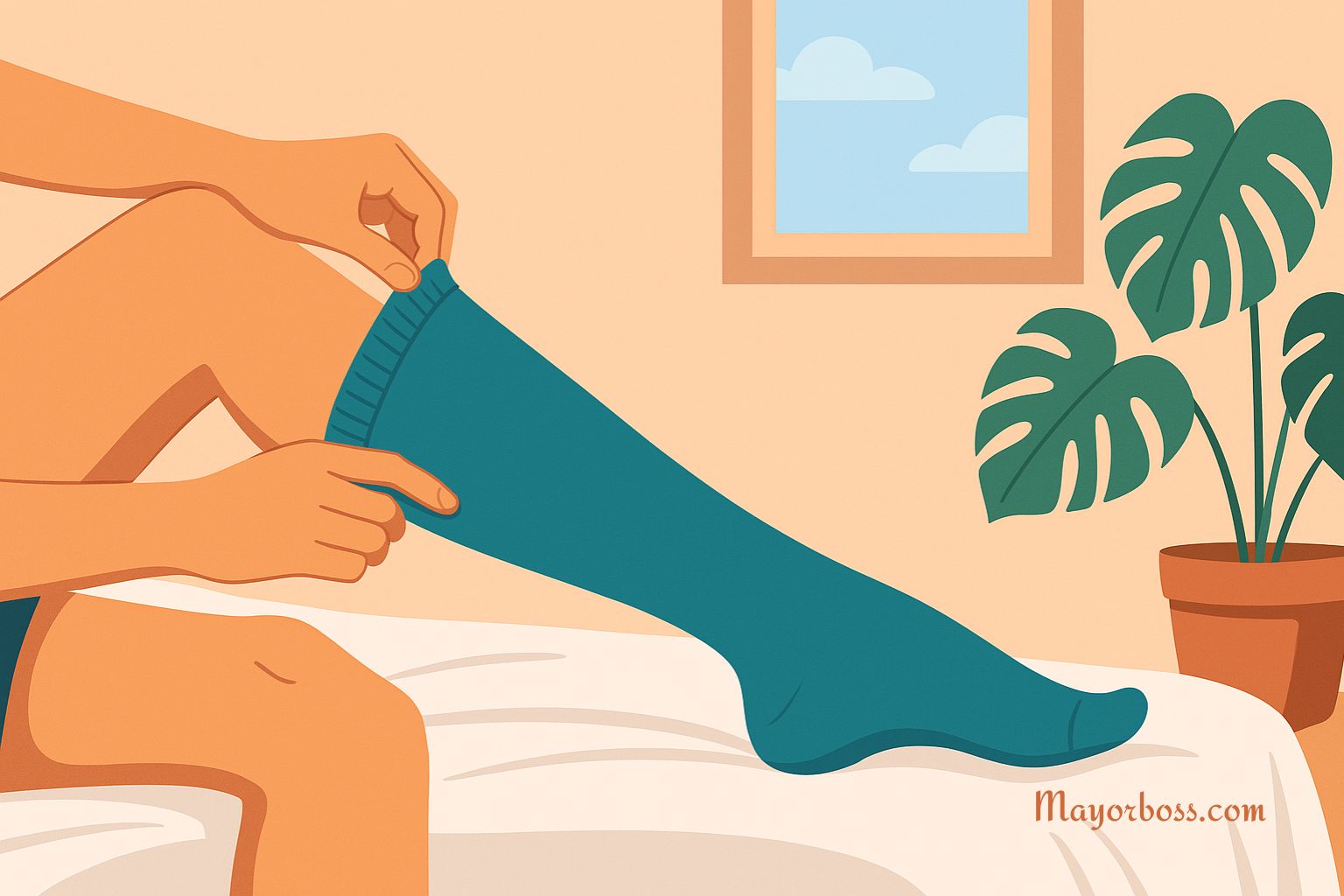1 in 4 Adults Think They Have ADHD – Here Are the Signs You Shouldn’t Ignore!

ADHD is often seen as a condition that affects kids, but adults can have it too. But adults can have ADHD too, and more people are realizing that they might have it. A recent survey by The Ohio State University Wexner Medical Center and College of Medicine found that 25% of American adults suspect they might have ADHD.
Despite this, only 13% have discussed their concerns with a healthcare provider, raising concerns among mental health experts. They are concerned that self-diagnosis could lead to incorrect treatments and even make symptoms worse. This makes it really important to know the signs, especially if they were missed when they were younger.
According to the Centers for Disease Control and Prevention (CDC) new survey, about 15.5 million adults in the United States have ADHD, and half of them were diagnosed as adults. This number has increased significantly over the years, showing that ADHD is not just a childhood condition.
Experts are concerned that many adults may try to self-diagnose and end up with the wrong treatment. For instance, ADHD can often be mistaken for anxiety or depression, and getting the wrong treatment could make symptoms worse.
As psychologist Dr. Justin Barterian explains, ‘Anxiety, depression, and ADHD can all seem similar, but the wrong treatment can make things worse rather than helping someone feel better or function properly.’ While many children are diagnosed early, a growing number of adults are now receiving a diagnosis as awareness of adult ADHD grows.
Dr. Barterian added that many parents realize they have ADHD only after their children are diagnosed. Since ADHD has a genetic component, seeing symptoms in their kids can make adults recognize the same traits in themselves. ‘There is more awareness now of how ADHD can persist into adulthood,’ Dr. Barterian said.
ADHD Symptoms in Adults Are Often Missed Until Later in Life
Many adults don’t realize they have ADHD until they are in their 30s, 40s, or even older. This is because ADHD looks different in adults than it does in kids. Adults might struggle more with staying focused, managing their emotions, or keeping up with responsibilities. It’s not always about being hyperactive. Many adults have found ways to adapt or hide their symptoms, but that doesn’t mean the symptoms go away. Instead, the symptoms might be less obvious but still cause problems.
Trouble Paying Attention Is a Common Sign of ADHD in Adults
One big sign of ADHD in adults is trouble paying attention. If you often zone out during conversations, struggle to finish books, or feel like your attention is being pulled in lots of directions, this could be a sign. In meetings, you might find yourself staring at the clock or feeling restless, which makes it hard to focus on what’s being discussed. Unlike kids, adults with ADHD don’t usually show visible signs of hyperactivity, but they might still feel mentally scattered.
Problems with Organization and Time Management Are Signs of ADHD
ADHD isn’t just about getting distracted. Trouble with organization and managing time is another common sign. You might notice that you have a hard time keeping track of deadlines or that you always feel like you’re running late. Maybe your desk is always messy, or you often forget important tasks—even after telling yourself you wouldn’t. These are signs that you could have ADHD.
Emotional Control Can Be Hard for Adults with ADHD
Many adults with ADHD have trouble with emotional control. This means that everyday problems might feel overwhelming, or you might experience quick changes in mood. Sometimes, you might react without thinking when you are frustrated. This doesn’t mean that all adults with ADHD are always in a bad mood, but managing emotions can be harder. For example, dealing with criticism can be really tough, which can lead to big reactions that don’t match the situation.
Procrastination Can Be a Big Problem
Adults with ADHD often have a hard time with procrastination. Even when you really want to get something done, it can feel impossible to start a project or finish your to-do list. This isn’t about being lazy—it’s more about feeling overwhelmed and not knowing where to start. Sometimes, procrastination happens because a task feels too big or you aren’t sure how to break it into smaller parts.
Adults with ADHD Sometimes Get Stuck in Hyperfocus
On the other hand, adults with ADHD can sometimes experience hyperfocus. This is when you get so focused on one thing, like work or a hobby, that you lose track of time and forget everything else. While hyperfocus can be helpful at times, it often means missing meals, ignoring other responsibilities, or forgetting appointments. For example, you might get so lost in a hobby that you don’t notice hours passing by.
ADHD Can Cause Problems in Relationships
Adults with ADHD can have challenges in their relationships. Communication problems are common because ADHD makes it hard to pay full attention or keep up with conversations. Your partner might feel upset because it seems like you aren’t listening, even though your mind is just overloaded. Forgetting important dates or interrupting a lot during conversations can also create problems, making adults with undiagnosed ADHD feel misunderstood or guilty.
Impulsivity Can Show Up in Different Ways
Another sign of ADHD is impulsivity, but it’s not always the kind where someone blurts out something inappropriate. Instead, adults may make impulsive decisions like buying things on a whim, quitting jobs suddenly, or taking risks without thinking them through. This isn’t about being reckless—it’s more about needing stimulation and acting before fully thinking about the outcome.
Feeling Restless and Overwhelmed by Daily Tasks
Adults with ADHD often describe feeling restless. This restlessness isn’t always about physical energy but more of an inner feeling of tension, like you can never really relax. You might also feel overwhelmed by daily tasks, like cooking dinner or paying bills. Things that seem simple to others can feel like huge challenges, which can be very frustrating.
Forgetfulness Is Another Sign of ADHD
If you often forget where you left your keys, miss appointments, or struggle to remember names, forgetfulness could be a sign of ADHD. Everyone forgets things sometimes, but with ADHD, it happens more often and can be disruptive. It’s not because you’re not trying—your brain just has a hard time managing all the information.
What to Do If You Think You Have ADHD
If you see yourself experiencing these symptoms, it might be time to talk to a healthcare provider. ADHD is often not diagnosed in adults because the symptoms can be mistaken for stress or just being busy. A professional, like a psychiatrist or psychologist, can do a full evaluation to see if ADHD could be affecting you.
Treatment Options for Adults with ADHD
The good news is that there are many treatments that work well for adults with ADHD, such as medication and therapy. Treatment usually involves a mix of medication, therapy, and changes to your daily habits. Medicines like stimulants can help you focus, and cognitive-behavioral therapy (CBT) can teach you ways to manage your time and emotions. Finding the right combination can really improve your life.
Self-Help Tips That Can Be Helpful
Besides getting professional help, there are also self-help tips that can make living with ADHD easier. These might include setting reminders, using planners, breaking tasks into small steps, or practicing mindfulness to reduce stress. Exercise and eating healthy can also help with focus and mood, giving adults with ADHD more tools to manage their symptoms.
ADHD Can Be Managed with the Right Support
It’s important to know that ADHD is not a personal failure or a sign that you didn’t grow up. With the right support, adults with ADHD can live well. Recognizing the signs is the first step to making your life easier and reaching your goals. If you think you might have ADHD, don’t be afraid to reach out to a healthcare provider.
References:
- https://www.nhs.uk/conditions/attention-deficit-hyperactivity-disorder-adhd/symptoms/
- https://www.healthline.com/health-news/undiagnosed-adult-adhd-what-are-the-signs
- https://www.nimh.nih.gov/health/topics/attention-deficit-hyperactivity-disorder-adhd
- https://www.healthline.com/health/adhd/adult-adhd
- https://www.nimh.nih.gov/health/publications/adhd-what-you-need-to-know






